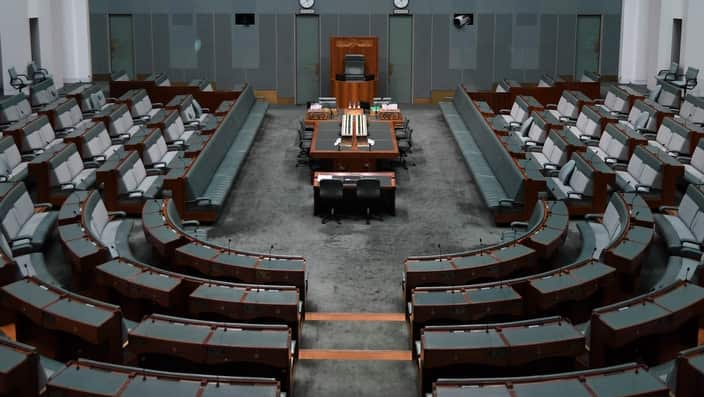From ‘Mediscare’ to ‘Bill’s Death Tax’ scare campaigns are a frequent weapon in the arsenal of Australia’s political parties.
And whether it’s ‘foreign nationals stealing land’, or ‘boat people threatening safety’, the so-called boogeymen of these short-term campaigns can face decades of repercussions.
As part of our deep dive into the fear, and the role it plays in our lives, The Feed looked at just what part this plays in the political landscape. Former media advisor to Kevin Rudd, Lachlan Harris, told The Feed there’s a simple reason scare campaigns are so frequently used.
“People use fear in politics because it works,” Mr Harris said. “Using emotions is an effective way of determining the dominant questions that people are en-masse asking in an election...and fear is at the absolute heart of the human emotional stack,” he added.
“Using emotions is an effective way of determining the dominant questions that people are en-masse asking in an election...and fear is at the absolute heart of the human emotional stack,” he added.

The empty chamber of the House of Representatives. Source: AAP
“It's the simplest and easiest to communicate and that's why lots of campaigns use it and that's why, often, it's very effective.”
International Scare Campaigns
Fear campaigns extend well beyond Australia’s political microcosm, according to Mr Harris.
He told The Feed that the Cold War was ”one ginormous, decades-long, multi-polar fear campaign.”
“The Reagan-esque ads around who is best to, kind of, deal with the Russians, are the absolute best in the breed, they are so, so good,” Mr Harris said.
“The absolute best of the best is this thing called, 'There's a Bear in the Woods’...the message is there's a big, scary adversary out there, and you've got to choose a leader who you think is best positioned to handle that adversary,” he said. “It's fear- it's pure fear. There's absolutely almost no references to the other candidate, it's impossible to rebut, but it's unbelievably effective.”
“It's fear- it's pure fear. There's absolutely almost no references to the other candidate, it's impossible to rebut, but it's unbelievably effective.”

Former media advisor to Kevin Rudd, Lachlan Harris Source: The Feed
When scare campaigns go too far
In 2018, legislation was passed to criminalise impersonating a commonwealth agency in response to Labor’s 2016 ‘Mediscare’ campaign.
In the lead up to the election, Labor operatives had used text messages to claim Medicare could be privatised by a government run by then-Liberal leader Malcolm Turnbull.
But Mr Harris said for him, the Liberal party’s 2001 ‘Tampa campaign’ stands out as Australia’s “most regrettable” scare campaign.
“It went from, kind of, dealing with people's concerns to ratcheting up illogical fear,” he said.
“[John] Howard's famous line in the campaign speech ‘We'll determine who comes into this country and the circumstances in which they come’ -- that was a devastatingly effective fear campaign and it was effective because it spoke to Australian's very, very deepest fear about their place in the world and their security on this continent.”
“It was very well executed but it was very, very regrettable because the object of the fear was real human beings.” Mr Harris believes the fear generated by that campaign is still impacting Australia’s attitudes towards refugees today.
Mr Harris believes the fear generated by that campaign is still impacting Australia’s attitudes towards refugees today.

Former Prime Minister John Howard. Source: Getty
“When you demonise people, real people, people who live in the Australian community, the consequences of that demonisation can last decades, generations, and I don't think it's hard to undo, I think it's impossible to undo,” he said.
“Political professionals want power, they want to win elections -- there's no clean up crew that comes after.”
The next political Boogeymen
Mr Harris said climate action, the rise of China, terrorism and the arrival of refugees are current fear-based political issues in Australia.
“I wouldn't be surprised if all of those elements appear in some meaningful way over the next couple of years.”
So, is there any hope for a positive election campaign amid the doom and gloom of this political era?
“Fear campaigns aren't unbeatable,” Mr Harris told The Feed.
“The good politicians, the once in a generation politicians, will win on optimism and owning the future...long may those politicians reign, but they're rare beasts.”
Share
Through award winning storytelling, The Feed continues to break new ground with its compelling mix of current affairs, comedy, profiles and investigations. See Different. Know Better. Laugh Harder. Read more about The Feed
Have a story or comment? Contact Us

